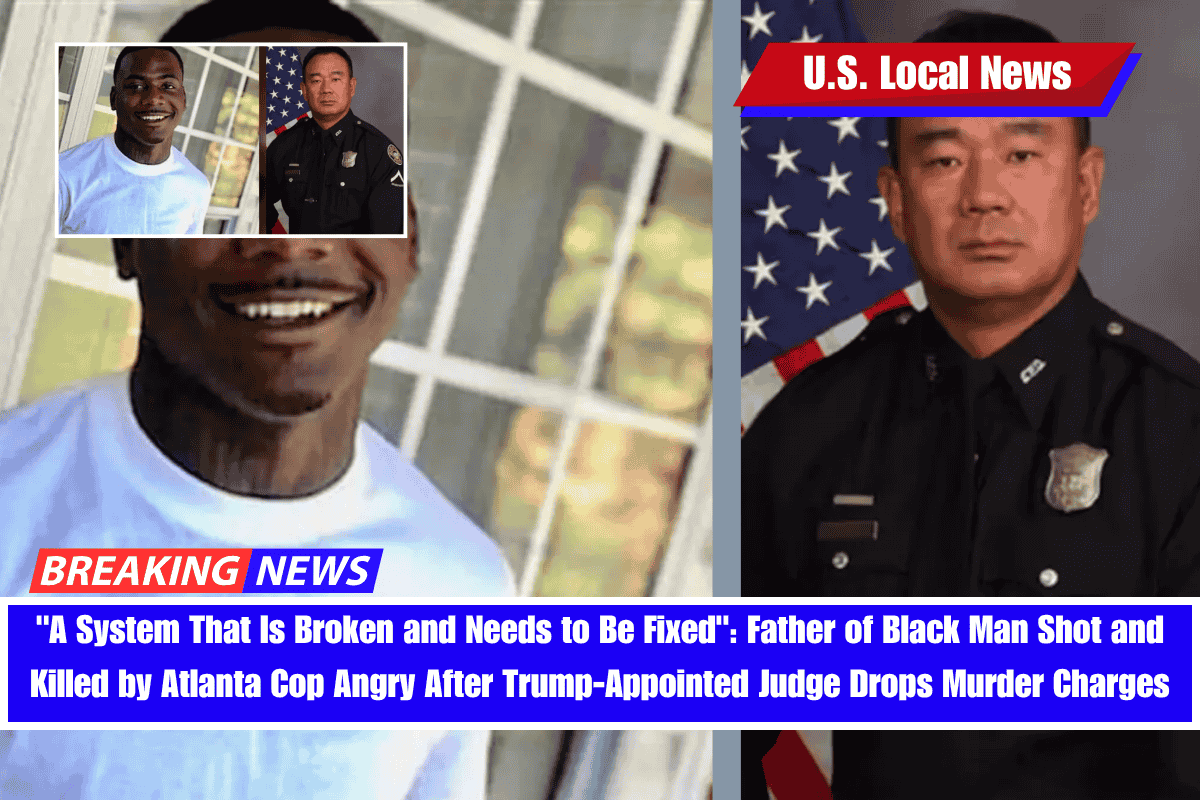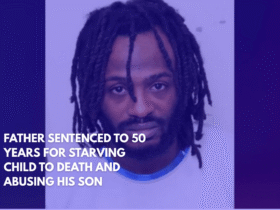In a ruling that has sparked outrage, U.S. District Judge Michael L. Brown cleared Atlanta police officer Sung H. Kim of murder charges related to the 2019 fatal shooting of Jimmy Atchison, an unarmed Black man.
The judge ruled that Kim acted in self-defense, citing the officer’s belief that Atchison was armed despite there being no evidence to support this claim. The decision highlights the ongoing debate over law enforcement accountability and the protection of police officers in controversial shootings.
The Incident and Allegations
The incident occurred on January 22, 2019, when Atchison, a 21-year-old Black man, was confronted by a federal task force that included Atlanta police officers, tasked with arresting him on a warrant.
According to Kim, he feared for his life when Atchison raised his hands “clamped together,” leading the officer to believe he was holding a weapon. Kim then shot Atchison in the face, killing him.
However, other officers at the scene, who were also part of the task force, claimed that Atchison only raised one hand and pointed it at Kim, leading them to also believe he had a gun. Despite these claims, none of the other officers fired their weapons.
Kim, a 26-year veteran of the Atlanta Police Department, later admitted that he could not recall if he had ordered Atchison to “show us your hands” or “don’t move.” Nonetheless, the Fulton County District Attorney’s Office determined that Kim had given the standard command to show his hands, which is typically used in all confrontational situations, including routine traffic stops.
Judge’s Ruling and Legal Context
Judge Michael L. Brown dismissed the charges against Kim, citing the Protection of Lawful Commerce in Arms Act and the Supremacy Clause that grants federal law precedence over state and local law.
According to Brown, Kim’s actions were justified under federal law, and the officer had a reasonable belief that Atchison was armed and posed a threat. The ruling asserted that Kim was acting in self-defense, noting that he did not need to see a weapon in Atchison’s hand to take action.
The decision was a major blow to Atchison’s family, who had hoped the courts would hold Kim accountable for the shooting. Jimmy Hill, Atchison’s father, called the ruling “a supreme failure in the criminal justice system,” emphasizing the pain caused by the judge’s decision to dismiss crucial evidence.
Investigations and Allegations of Misconduct
The Fulton County District Attorney’s Office conducted its own investigation into the incident, which revealed several departmental violations. The investigation found that Kim had lied about Atchison’s criminal history and that the officers involved in the pursuit failed to follow standard procedures, including not notifying the SWAT team when Atchison barricaded himself in an apartment.
Furthermore, the report stated that the AMMO Task Force, a unit overseen by the FBI, did not have a search warrant to enter the apartment where Atchison was hiding. Despite this, officers entered the apartment without a warrant, a violation of the law.
The investigation also uncovered evidence that Kim violated the policies of both the Atlanta Police Department and the FBI, and he was later found to have committed numerous departmental infractions. Despite this, Judge Brown maintained that Kim was acting within his duties under federal law.
Mexico’s Claims and the Legal Context
Atchison’s family and legal team expressed frustration with the ruling, with Gerald A. Griggs, the attorney representing the family, calling for an appeal of the decision. A petition on Change.org has been launched to gather support for an appeal, with 51 signatures at the time of writing.
The case also highlights broader concerns about the accountability of law enforcement, especially when it comes to fatal police shootings. Atchison’s family argues that the officer’s actions were a clear violation of Atchison’s constitutional rights, with his father stating that Kim “willfully showed a disregard towards the Constitution” and violated his sworn oath.
The Warrant and False Allegations
The confrontation began after Kelly Brogan, a woman who had accused Atchison of armed robbery, falsely claimed that he had stolen her phone at gunpoint. However, Atchison’s father asserts that his son never used a weapon, and the phone was taken without force, as Atchison simply asked to use it.
Jimmy Hill also pointed out that Brogan was never subpoenaed for her false claims, and the police failed to conduct a thorough investigation before issuing the arrest warrant.
Despite the lack of evidence against Atchison, the Atlanta police pursued him with militarized force. During a foot chase, Atchison ran into another woman’s apartment and hid in a closet. It was there that Kim gave the command for Atchison to raise his hands, ultimately leading to the fatal shooting.
Public Response and Calls for Change
The Supreme Court ruling in favor of Kim and the federal protections for law enforcement officers have ignited further discussions on police accountability. Critics argue that the system continues to favor police officers, even when violations of due process and citizens’ rights are evident.
Jimmy Hill expressed his heartbreak and disbelief at the court’s decision, calling for a systemic change. He lamented, “It’s a broken system that needs to be fixed.”











Leave a Reply